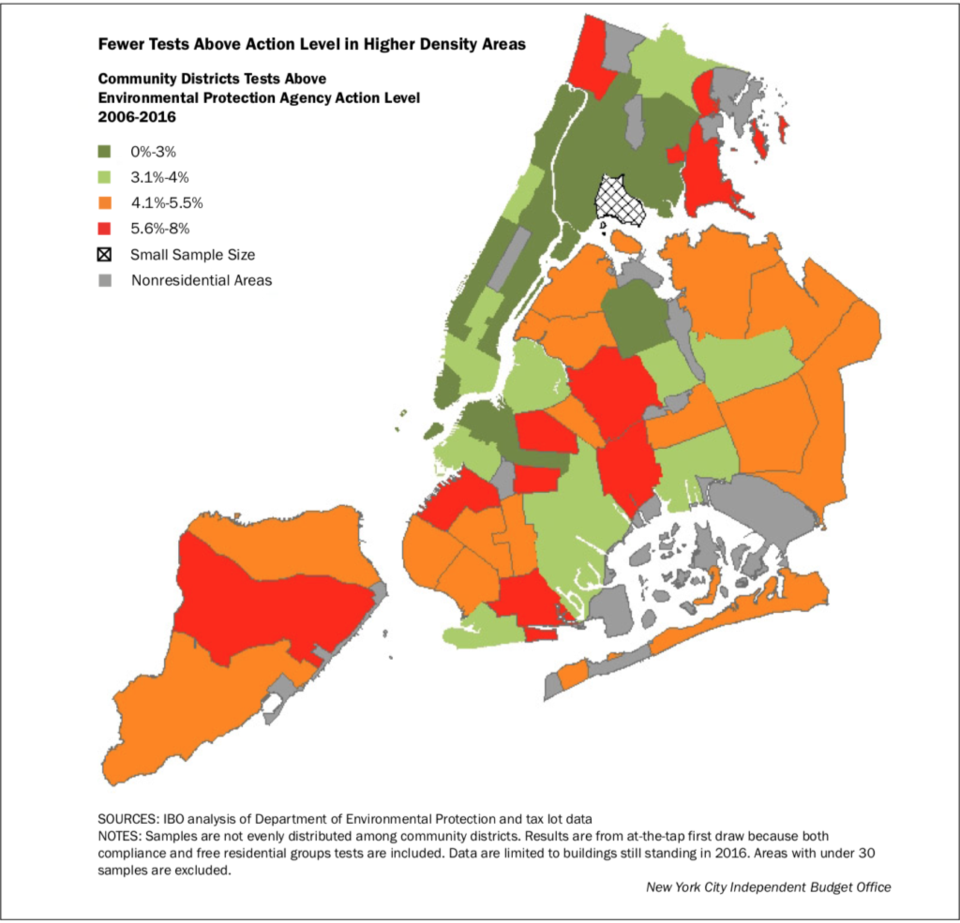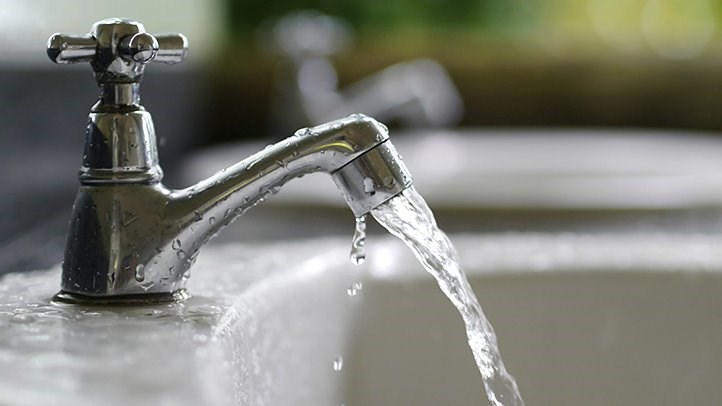The tap water in Bedford Stuyvesant shows some of the city's highest lead levels according to a new study released by the NYC Independent Budget Office (IBO).
Based on water testing data from 2006 through 2016, more than 5.5 percent of lead tests in Bed-Stuy found water samples above the "action level"-- 15 parts per billion (ppb)-- accepted by the Environmental Protection Agency (EPA). Crown Heights, Sunset Park and Windsor Terrace also showed levels exceeding the federal limits. Some of Brooklyn's lowest lead levels were found in Fort Greene, Brownsville and Williamsburg.
"Numerous privately owned older, smaller residential buildings in New York have plumbing that contains a much higher level of lead than is currently allowed to be used in new construction," stated the report.

Historically, lead service lines were only used with smaller buildings because the lead material limited the pipe diameter to two inches, while larger buildings required wider diameter service lines. The highest rates of tap water testing above the 15 ppb action level are regularly found in buildings constructed during the 1920s and 1930s. And while lead pipes have been outlawed since 1961, service lines built prior usually contain lead and are still used throughout New York City.
The city has no means to force landlords or homeowners to remove lead leaching service lines, nor are they required to notify tenants if elevated levels of lead have been found in their building, the report stated. However, city laws prohibit lead service lines at private residences from being repaired if they are damaged and instead require that such lines be replaced with lead-free pipes.
Still, NYC is in compliance with federal and state regulations for at-the-tap monitoring in residences, the study concluded. Additionally, the city spends about $10 million annually treating the water supply with anticorrosive chemicals to help prevent lead from leaching into the water.
Concerned New Yorkers can request free lead testing kits to monitor their water, switch to bottled water or purchase filters for their faucets.
Meanwhile, the City Council is considering at least 23 bills that address various issues around lead exposure.




